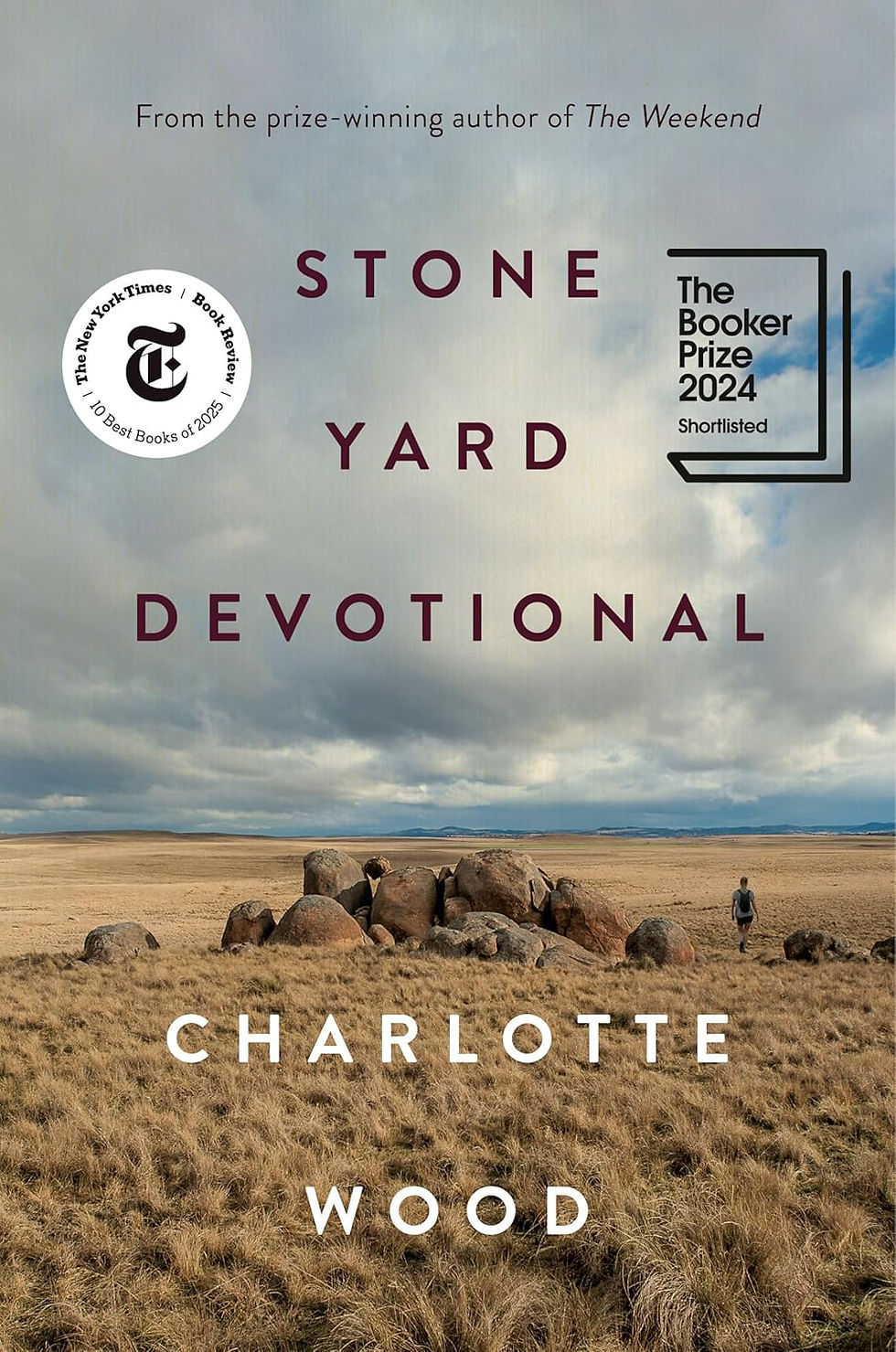Review of The Emperor of Gladness by Ocean Vuong
- The Bossy Bookworm

- Jun 12, 2025
- 2 min read
Ocean Vuong's literary fiction offers unexpected bonds between characters coping with desperation, addiction, lies, hunger, and past tragedies in this examination of societal ills that doesn't offer easy resolutions for the story's protagonists.
He was nineteen, in the midnight of his childhood and a lifetime from first light. He had not been forgiven and neither are you.
Nineteen-year-old Hai is standing on the edge of a bridge in the industrial town of East Gladness, Connecticut, feeling that he's out of options and ready to end it all. But Grazina, an elderly widow who lives next to the bridge, calls him down, and the two strike up a friendship.
Grazina is suffering from dementia, and Hai, whose prospects are slim, jumps at the chance to become Grazina's caretaker, have a roof over his head, and befriend Grazina. It's an unorthodox situation, and Hai is far from fallible when it comes to being tempted by medications and cash, but he is an imperfectly perfect friend to Grazina. He dives into her perceived reality and actively participates within it in order to calm her down; he buys her favorite frozen food and supervises her meds; and he cares for her more deeply and frequently than her own son.
Issues of memory, chosen family, history, loneliness, and love shape Vuong's novel, and the author forces readers to confront uncomfortable realities of low wages and desperation; addiction and limited recovery resources; and significant consequences of mistakes that can't be glossed over.
The section on hog butchering may be an eye opener for anyone (anyone?) who doubts that industry's brutality. The scenes here were so extended, they felt like a jumbled departure from the rest of the storyline, and they were so detailed, they felt gratuitously violent and seemed clearly intended to manipulate emotions and set readers on edge.
"You know, I've been cutting up these hogs for three years now. I don't regret none of it. They were born to die. And I'm just a hammer. Somebody else is using the hammer, I know that. I just don't know if it's that dude up there...or the motherfucker down here."
The novel offers a powerful examination of a group of minimum-wage earners and their inability to make ends meet--and, in this story, their deep bonding to each other across differences in race, age, gender, past experiences, and sexuality. The unexpected bonds that form throughout the book, both at the fictional fast-food chain HomeMarket and beyond, give the story heart and poignancy.
This is literary fiction with a bite; Vuong's prose is often luminous or gritty, and the author doesn't pretend to have easy answers for the beleaguered main protagonist or his fellow humans in this messy world. The long-ago brutal death of a young woman in the town was introduced early but faded in weight in what felt like a deliberate take on our society's growing callousness to violence and loss. The story ends with some satisfying resolutions, but other characters' lives remain suitably complicated and in some cases persistently tragic.

More from Ocean Vuong
Ocean Vuong is also the author of On Earth We're Briefly Gorgeous, Night Sky with Exit Wounds, Time Is a Mother, and other books.





Comments